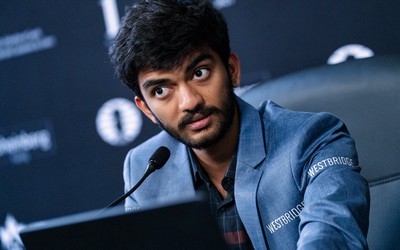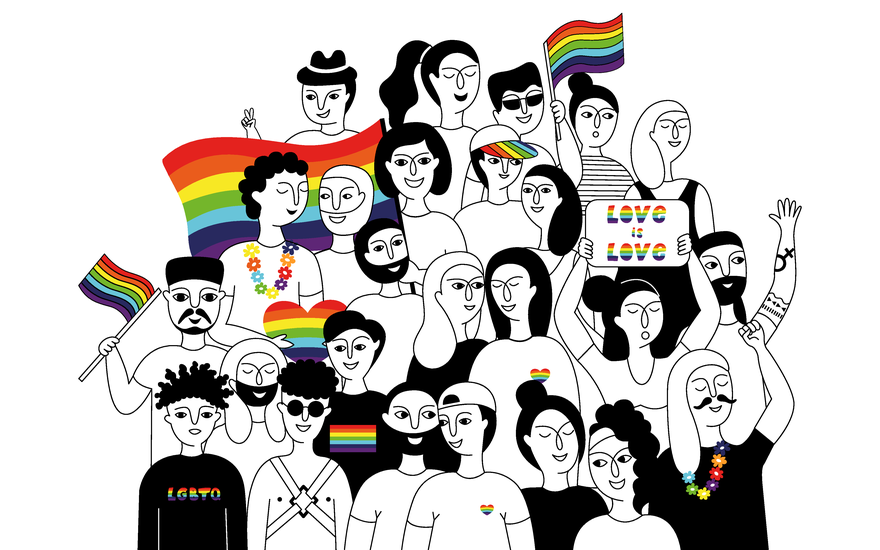
Lichess Celebrates Pride Month
On the 28th June 1969, in the early hours of the morning, the New York City Police raided The Stonewall Inn, a gay bar in Manhattan's Greenwich Village. This single action galvanised the LGBT+ community for decades, and the ripples continue today. The ensuing riots were a pivotal moment in the fight for LGBT+ rights, and kickstarted a more visible and direct era of campaigning for those rights. A year later, the Stonewall riots were commemorated with the first gay pride march, and later became more recognisable as modern LGBT+ Pride events. Because of the events of 1969, every June, we celebrate the progress made by and for LGBT+ people, and consider how much further there is still to go until LGBT+ people have worldwide freedom to live their most authentic lives.
This year, with rollbacks of LGBT+ rights underway all across the globe, pride month feels even more urgent. We had intended to write an overview of LGBT+ history within chess, but this turned out to be much more difficult than anticipated. Next to nothing has been written about the LGBT+ contingent of the chess community. Only a tiny minority of players are public about their sexual and/or gender identity. There seems to be a general attitude that identity and sexuality should not be discussed in the chess world, much less acknowledged by official bodies in that world. In the Lichess Discord server we witnessed in real time the fury that followed when we changed the server icon to one with a pride theme. Objections along the lines of "Why do you have to bring politics into it?" "Why do you have to make it about sexuality?" "Chess has nothing to do with identity."
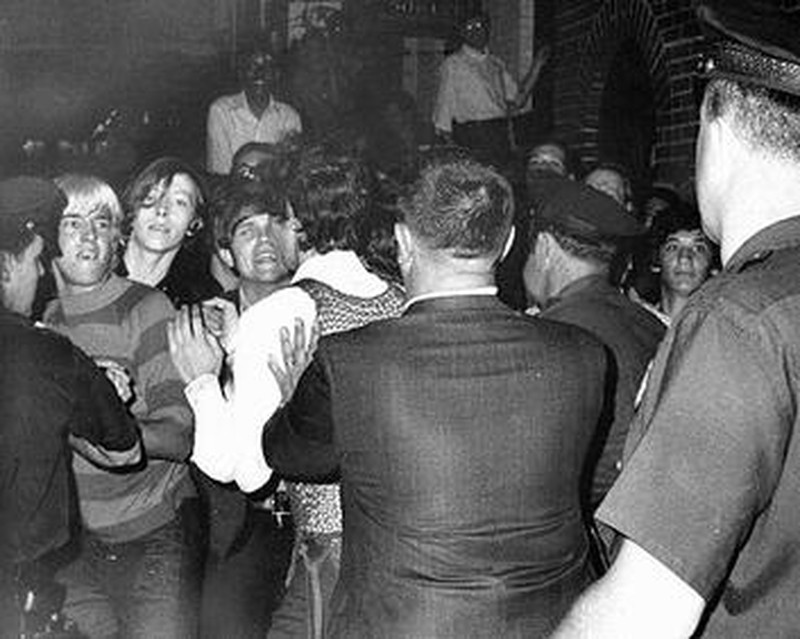
The Stonewall "Riots," 1969
Chess, from top to bottom, is run by politicians making political decisions. Vladimir Putin wrote letters to chess federations recommending Arkady Dvorkovich for FIDE president. Narendra Modi, the Indian Prime Minister, launched the torch relay for the Chess Olympiad. Politics has been here all along. The current managing director of FIDE was minister of Economics (2014-2016) and minister of Finance (2016-2019) of the Republic of Latvia. Lichess is not an exception: the choice to provide world-class chess tools for free is political. The fact that we are a non-profit is political.
And whilst of course it's true that sexuality and gender have very little to do with the game itself, the chess community is comprised of people, not pieces. A significant, growing proportion of players belong to marginalised groups, and making these players feel welcome in clubs, servers, and tournaments will encourage them to stay and form lasting bonds.
The chess world can thrive in the future as it has done in the past, by including the broader range of players that at present are tolerated at best. A diverse community is a healthy community, and demarcating who is and is not an acceptable chess player based on political or personal distaste is a guaranteed path to stagnation.
Part of what Lichess can do, by virtue of not being beholden to shareholders, is to give a platform to voices that are not necessarily profitable or popular. Pride isn't just about changing an icon to a rainbow flag, but recognising that members of the LGBT+ community are members of the chess community, and members of the global community. We would like to share the following thoughts from a few such people, some with good experiences, and some with bad, but all valid and worth listening to, understanding, and actively supporting.
I spoke to a bisexual man about his experiences. He told me that "[his sexuality] hasn't really had a direct impact, but it makes creepy old conservative men more obnoxious. I'll get ragged on for not lifting weights, not being a pervert who ogles at women. It's just one guy, but it's still an environment I could do without."
An NM who preferred to remain anonymous told me that she was celebrated by the community as a female player, but that her sexuality was ignored. However, she found tournament culture to be accepting, putting this down to her fellow players being "generally curious and open-minded" people who "may have felt like outsiders themselves" before finding chess.
Similarly, Discord user tux told me that he "[didn't] really think it's had a direct impact so far; no one has discriminated against me for my orientation." However, he did also note that he'd had several run-ins with a group of anti-transgender activists on chess Discords.
It would be remiss to write this pride month piece without acknowledging the specific issues faced by the trans community at this time, and of course, the wider chess world provides little respite. Yosha Iglesias, a FIDE master, is a trans woman who has found herself ineligible for women's prizes in France. She has written about her experiences on her blog and Twitter. NM totoroo has also written a blog post about transphobia and homophobia in chess, outlining the hostility of online chess groups, and the lack of official support to combat that hostility. From her post: "forums aren't moderated and hate speech in chats aren't being addressed. For LGBT+ people this means an unsafe environment of bullying and harassment. [...] At the moment it seems that chess platforms are unwilling to do anything and are most likely fearful that by supporting LGBT+ people they would also reveal the inherent homophobia and transphobia in their communities. [...] When for example trans people face transphobia like in the 'I identify as a grandmaster' thread nothing is being done. The most that I've seen chess platforms have done to take LGBT+ people into account in their many years of existence is the option to have a rainbow flag on your profile on Lichess and a rainbow "flair" on Chess.com (and even that's only for paying members). Needless to say, this is not nearly enough."
Could someone from @ChessBase please explain to me how the f*ck all the games I've played since FIDE legally changed my name to Yosha are displayed on Chessbase with my deadname?
Like you take the PGN with Yosha, change it to my deadname, and put a 10-year-old picture of me?
--- Yosha Iglesias (@IglesiasYosha) June 28, 2022
Another player, who also preferred to keep her anonymity, told me about the stress she experiences navigating the space as a trans woman: "I'm actually afraid to eventually meet players I knew before [transitioning] and have to explain that I changed my name and gender. I've had a lot of anxiety and some bad dreams around exactly that. Like bad dreams where I'm wearing perfectly normal clothes any other girl could wear yet still being kicked out for some dress code violation, or having an opponent get upset after a loss and throw my chess set off the table, or just being called slurs and have no one want to talk to me."
It is a good sign however, that despite her anxieties, when she does engage with other players "it always turns out fine." She was also positive about her life as a trans woman more generally, telling me that "my friends have all accepted me, my family all still love me, and so far no one has discriminated against me in public (I actually get more compliments than before!). So I do hope that my chess community will also accept me, I just wish I had a way to know for sure so I wouldn't be afraid."
This post is not a definitive statement on the experiences of LGBT+ people in chess. There are as many different experiences as there are players, and this kind of piece can only scratch the surface of that range. But we can take away something from these statements. It's certainly a positive sign that most of those quoted have been accepted by their peers, or at least not openly harassed. In an ideal world this post would feature five totally positive uncaveatted anecdotes. Yet the examples of (especially online) abuse, the bigotry both systemic and personal that LGBT+ players encounter, and their not-unfounded fear of rejection show how much more progress is yet to be made. It is vital that the chess community remain actively supportive of its LGBT+ members, and I hope this 28th of June serves as an opportunity to be accepting of our fellow players, not just for pride month, but every day.
More blog posts by Lichess
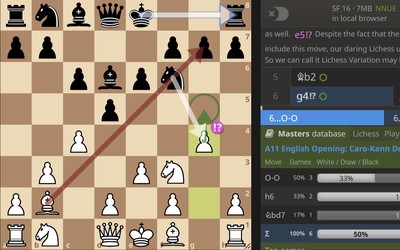
Lichess Game of the Month: March 24
Aggressive English/Reti system with 6.g4!?
Round 14: Gukesh and Zhongyi are officially the World Championship Challengers
A historic finish to the FIDE Candidates, as 17 year old Indian prodigy becomes the youngest World C…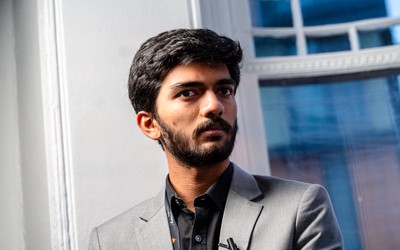
Candidates Round 13: Gukesh takes the lead, Zhongyi pulls ahead
A massive day for the 17 year old Indian, as his chances to win the Candidates skyrockets, as Zhongy…